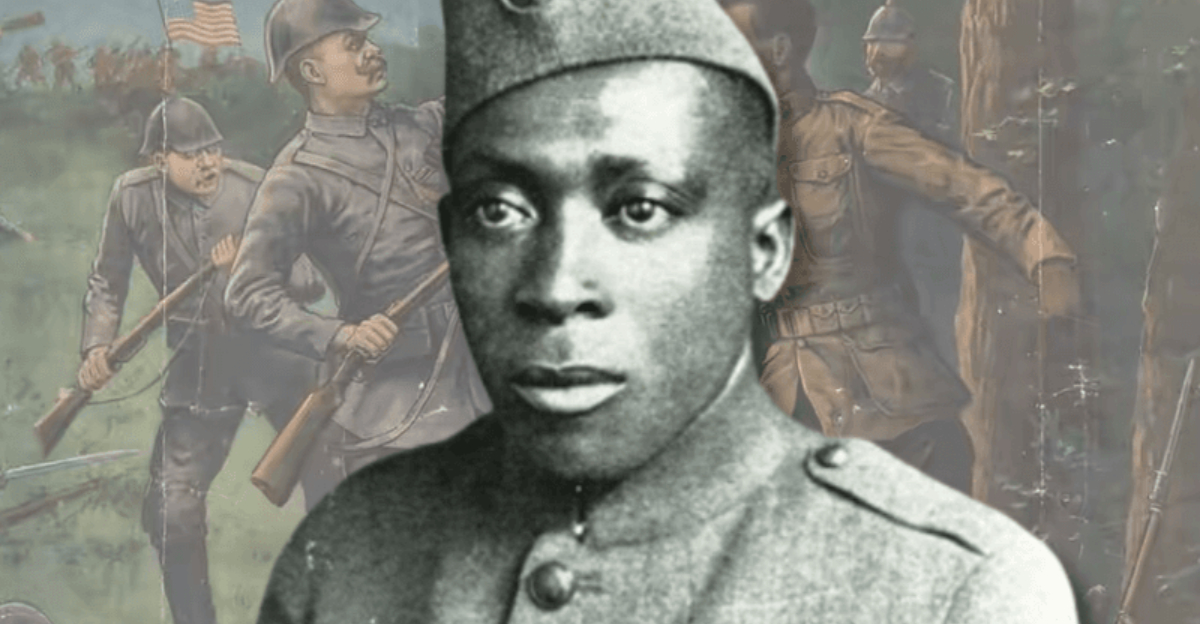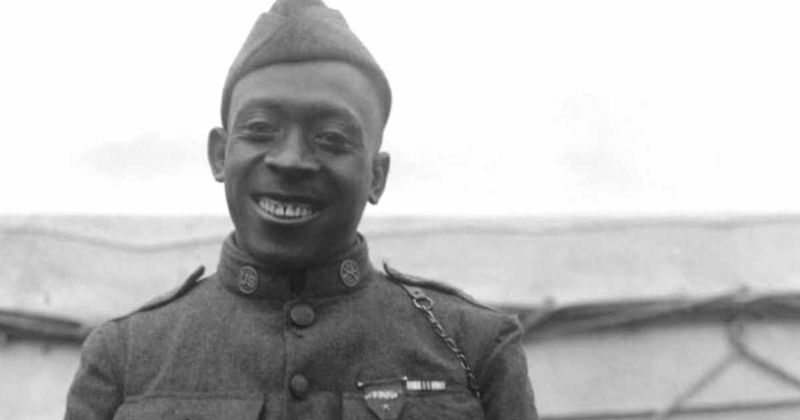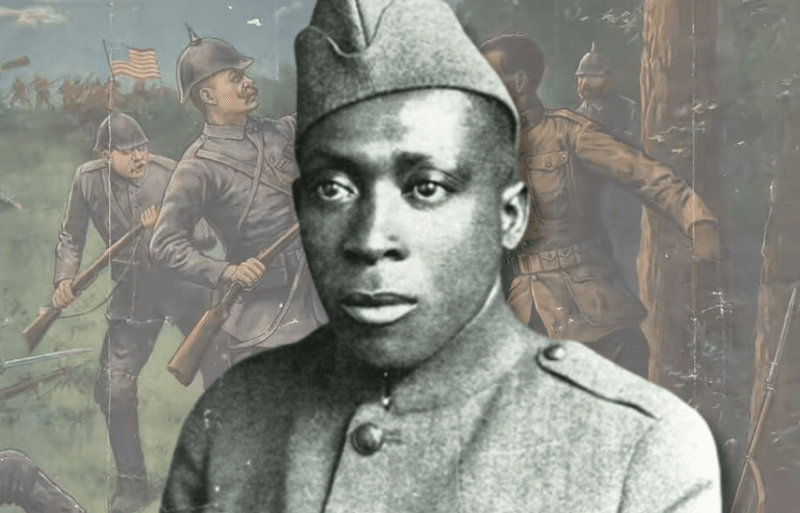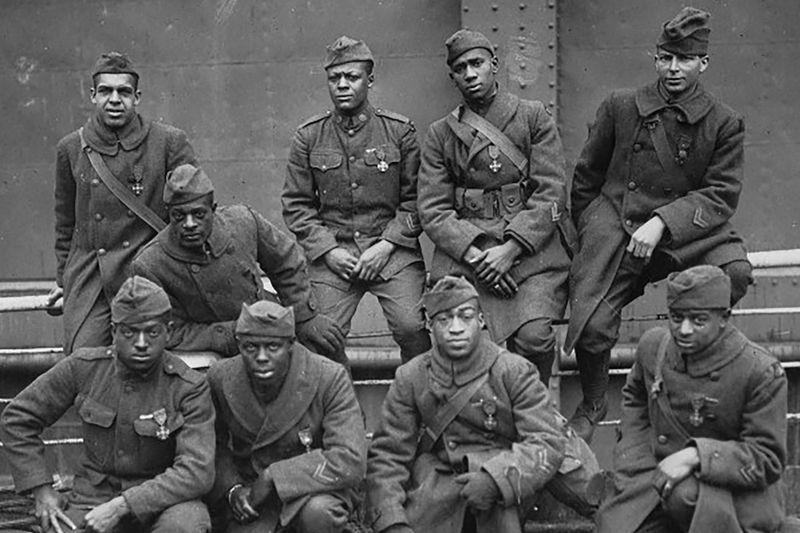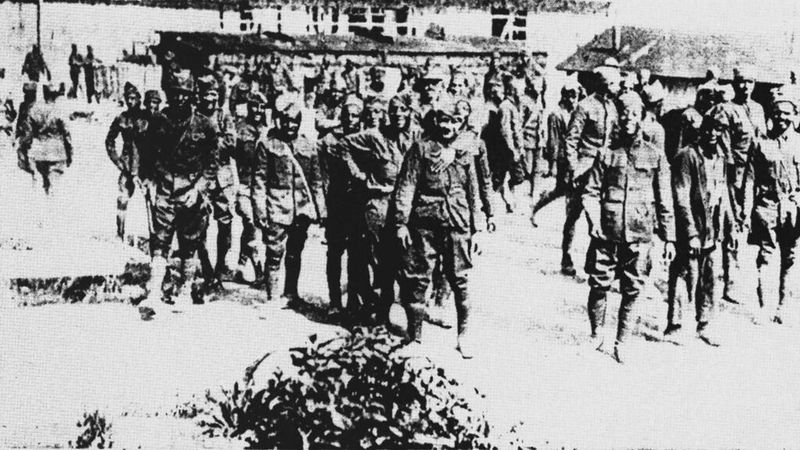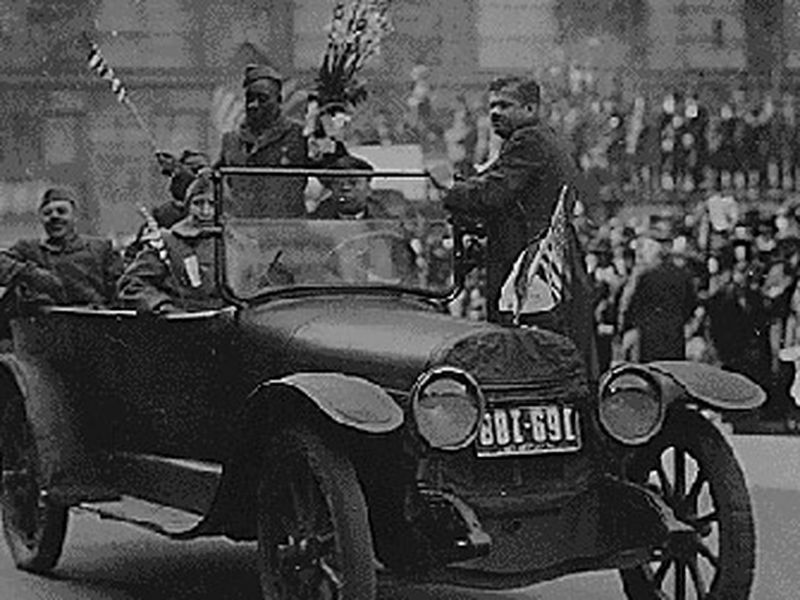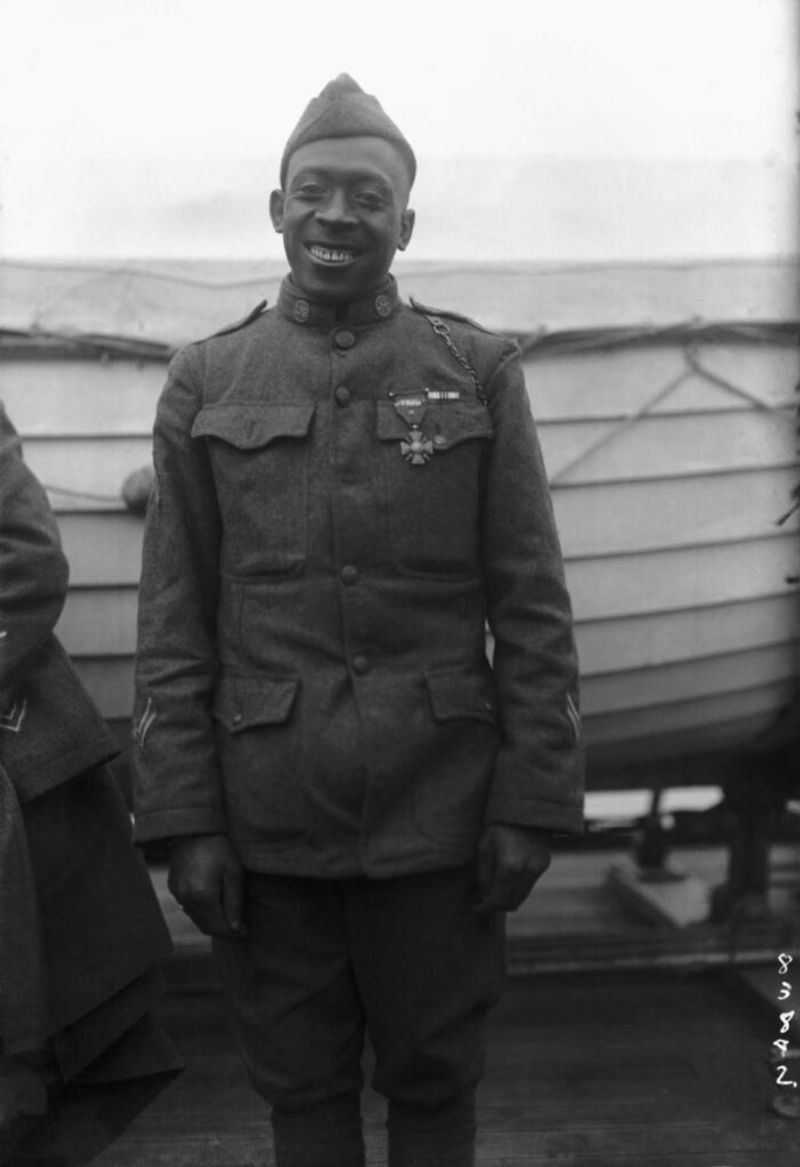In the chaos of World War I, one American soldier stood against impossible odds and changed history. Henry Johnson, a railway porter turned warrior, faced down more than 20 German soldiers single-handedly during a midnight raid in 1918.
His extraordinary courage saved lives and earned him the fearsome nickname ‘Black Death’ from admiring French allies, though his own country would take nearly a century to properly honor his sacrifice.
1. Fighting Despite Segregation
Relegated to the sidelines by his own military, Henry Johnson refused to let racism diminish his patriotism. As a member of the all-Black 369th Infantry Regiment—the famous Harlem Hellfighters—Johnson found himself under French command because America wouldn’t let Black soldiers fight alongside whites.
The U.S. Army initially assigned these soldiers to labor duties, denying them combat roles. Yet when transferred to French forces desperate for manpower, Johnson and his comrades finally received proper weapons, training, and respect.
Despite this treatment, Johnson fought with remarkable dedication for a country that didn’t fight for him.
2. Outnumbered But Never Outfought
The odds seemed insurmountable that fateful night. While manning a listening post in the Argonne Forest on May 14, 1918, Johnson and fellow soldier Needham Roberts suddenly faced a German raiding party estimated between 20-30 men. Their mission: capture American soldiers for intelligence.
Roberts was quickly wounded by a grenade, leaving Johnson essentially alone against the onslaught. Most men would have surrendered or fled. Johnson chose differently.
Standing his ground despite multiple injuries, he repelled wave after wave of attackers, demonstrating that one determined defender could overcome overwhelming numerical disadvantage.
3. Weaponless Wonder
Running out of ammunition meant getting creative. Johnson’s desperate battle began with grenades, throwing them at the advancing Germans until his supply dwindled. When his rifle jammed after firing just three rounds, most soldiers would have surrendered.
Instead, Johnson transformed into a one-man arsenal. He swung his rifle like a club, smashing German skulls with its wooden stock. When that wasn’t enough, he pulled out his bolo knife—a heavy-bladed cutting tool—and charged directly into the enemy force.
His ferocity with improvised weapons sent battle-hardened German troops fleeing into the night.
4. Rescuing His Brother-in-Arms
Loyalty shone brightest in Johnson’s darkest hour. As German soldiers attempted to drag the wounded Needham Roberts away as a prisoner, Johnson faced a critical choice—save himself or risk everything for his comrade.
Already bleeding from 21 wounds himself, Johnson charged after the captors. Witnesses reported seeing him plunge his knife into one German soldier’s ribs and shoot another, forcing them to drop Roberts and retreat.
“I wasn’t going to let them capture my friend,” Johnson later said simply. His selfless rescue mission completed what would become known as The Battle of Henry Johnson.
5. The Nickname That Struck Fear
“Black Death” wasn’t a racist slur but a badge of honor. French officers who witnessed Johnson’s battlefield ferocity bestowed this fearsome nickname out of profound respect for his combat prowess. The name spread through Allied ranks, becoming a legend among troops of all backgrounds.
French newspapers celebrated his exploits with headlines like “The Black American Who Killed Four Germans and Wounded 32.” His reputation grew so large that American propaganda posters began featuring his likeness to boost morale.
For a brief moment, his battlefield valor transcended the color barriers that divided American society.
6. France’s Hero, America’s Afterthought
The contrast in recognition couldn’t have been more stark. Within weeks of his legendary stand, French military leaders pinned their nation’s highest combat decoration—the Croix de Guerre avec Palme—on Johnson’s chest. General John J. Pershing’s headquarters cited his actions in official communications.
Yet back home, the U.S. Army offered nothing. No Purple Heart for his wounds. No Distinguished Service Cross for his bravery. Not even a disability pension when he returned broken and unable to work.
Johnson died destitute in 1929, his heroism acknowledged abroad but ignored by the country he had so valiantly served.
7. Posthumous Justice Arrives
Nearly a century passed before America fully honored its forgotten hero. The journey to recognition began with a campaign by military historians and the Black community to correct this historical injustice. In 1996, President Clinton awarded Johnson the Purple Heart. In 2002, he received the Distinguished Service Cross.
The final recognition came in June 2015. In a White House ceremony, President Barack Obama posthumously awarded Henry Johnson the Medal of Honor—America’s highest military decoration.
“The nation that denied him his rightful recognition finally sees him with new eyes,” Obama said, as Johnson’s long-delayed justice was finally served.
